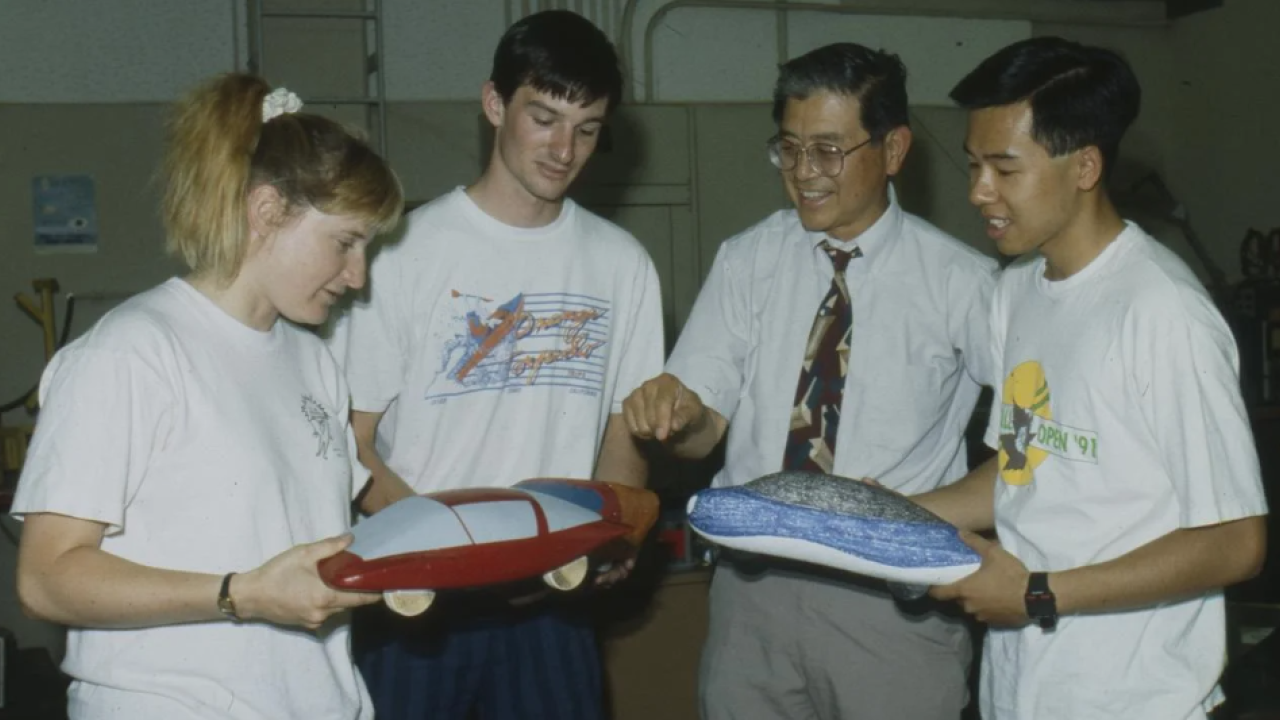
Plug-in Electric Vehicles Archive to Be Housed at UC Davis Library
Shields to house archive of plug-in EVs
In this article, The Davis Enterprise explores Andy Frank's 50-year legacy and contributions to clean transportation.
During National Drive Electric Week, the University of California, Davis, today (Sept. 27) announced that it has begun to build a Plug-in Electric Vehicles Archive. It will be housed at the UC Davis Library’s Archives and Special Collections with support from the UC Davis Electric Vehicle Research Center.
The archive will focus on the decades-long story of how plug-in hybrid electric vehicles, or PHEVs — long seen as a science project — shifted from prototypes and modifications to mass production. The archive will help chronicle the development and commercialization of all varieties of electric vehicles, highlighting the unique role that UC Davis played in this process.
UC Davis has been involved through both the College of Engineering, with leadership from Andy Frank in mechanical and aerospace engineering, and through the Institute of Transportation Studies, or ITS-Davis, under the leadership of Dan Sperling.
The collection will include the unique records and memorabilia from two key players:
- Andy Frank, called “The Father of the Modern Plug-in Hybrid.” Now a professor emeritus, he started working on PHEVs 50 years ago at the University of Wisconsin. Later as a UC Davis professor with students in “Team Fate,” Frank built a series of PHEV conversions that caught the attention of both EV fans and automakers. As he turns 90, he is actively involved in advancing Strong Plug-in Hybrids, or SPHEVs.
- Felix Kramer, founder of the California Cars Initiative. The DIY hybrid conversions by his organization sparked a coalition of activists, advocates, analysts and entrepreneurs. They inspired and prodded the auto industry in a successful campaign from 2002 to 2010 that led to the arrival of the Chevy Volt and, later, many other PHEVs.

The archive will feature unique digital and physical materials that showcase the engineering developments and grassroots efforts that led to the mass production of PHEVs by automakers today.
A public event related to the archive will be held online, at 1 p.m. PDT on Oct. 1, coinciding with the final day of National Drive Electric Week.
The archive is currently being processed, and the library anticipates it will be available for research, study and instruction by the end of 2024.
Members of the public with memorabilia or other materials related to the history of plug-in hybrid electric vehicles at UC Davis can contact the library’s Head of Archives and Special Collections Kevin Miller at kcmiller@ucdavis.edu or 530-752-2114.
